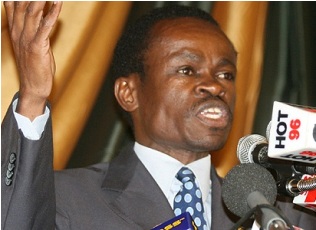40% of Africa’s annual GDP lost to corruption say experts
August 20, 2010 (NAIROBI) – Nearly 40 percent of Africa’s Gross Domestic Product (GDP) is lost annually in corruption related practices, according to the Director of Kenya Anti-Corruption Commission (KACC) Professor. PLO Lumumba.

“Today, corruption remains the biggest threat to Africa’s development. Nearly 30-40% of Africa’s GDP is lost in corruption-related practices, yet Africa remains the richest continent in the world in terms of economic resources,” the KACC Director said.
Africa’s problems, he said, was being worsened by the persistent brain drain of professional trained people travelling to work in the developed world.
Lumumba said the phenomenon was largely due to the continent’s poor labor policies, low pay and high unemployment levels.
“Africans should desist from relying on divine intervention to solve their economic problems. The fight against corruption should be seen as a spiritual war, if we are to realize our vision to stamp out this deadly obstacle,” Lumumba remarked.
The two-day symposium, organized by the Kenya-based Education Center for Women in Democracy (ECWD) with funding from the Commonwealth Foundation drew civil society activists from the Kenya, Tanzania and Uganda.
ECWD chairperson, Tabitha Seii, the described corruption as a big obstacle to prosperity and said that if it was not eradicated, it could undermine efforts to achieve sustainable development.
Seii said that her organization was determined to ensure that there are as many female voices as possible in decision making processes. Fighting corruption, she added, should also involve the active involvement of all stakeholders.
“Women need to be part of this campaign for zero tolerance for corruption. As ECWD, we believe this is only possible with the active involvement of all policy makers, governments, stakeholders and communities,” Seii observed.
Millennium Development Goals
Reducing rampant poverty and high maternal mortality rates (two of the eight UN Millennium Development Goals – MDGs) also featured prominently at the symposium.
Some attendees to the conference argued that regional health structures and systems remain extremely weak, with untrained and unskilled personnel.
Dr. Angie Dawa, the Regional Manager for Abantu for Development advocated for a more effective approach to disseminating information on reproductive and maternal health-related issues.
(ST)
